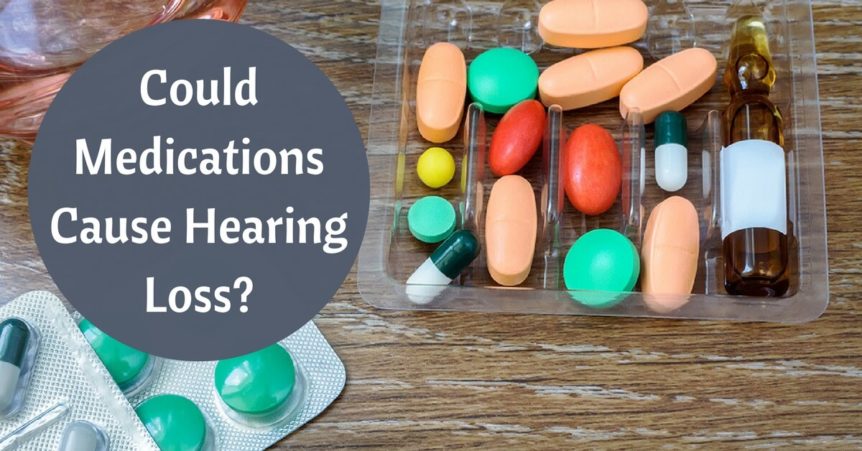In 1944, the drug streptomycin saved the lives of many tuberculosis patients, but at a cost. A large number of patients treated with streptomycin were found to have developed irreversible hearing loss. Subsequently, research was conducted on streptomycin and other aminoglycoside drugs to discover the causes of these drugs’ side effects. Since these early years of research, over 100 classes of drugs have been deemed harmful to our sense of hearing. Let’s take a closer look at medications that are potentially linked to hearing loss.
What is Ototoxicity?
The correlation between drugs and hearing loss is called ototoxicity, or “ear poisoning.” The effects of ototoxicity may range from temporary to permanent, and its degree of damage depends on characteristics of the drug as well as a person’s genetic makeup, but there is no cure for hearing loss. In the majority of cases, ototoxicity attacks the sensitive hair cells that line our inner ear and cochlea. Hair cells, when damaged, do not regenerate and their deaths have been linked to hearing loss. Though hearing loss induced by ototoxicity usually affects both ears, there have been instances where only one ear suffers.
Certain drugs or chemicals, though life-saving, may cause damage to the inner ear or the vestibule-cochlear nerve (which transmits information specific to hearing and balance to the brain). As a result, individuals who suffer from ototoxicity suffer from hearing loss and loss of balance. Early symptoms include dizziness, vertigo, and tinnitus.
A Double-Edged Sword
There’s no denying the important of modern medicine. Researchers, scientists, and doctors have made important discoveries and strides in treating illness and disease. Many of the most common drugs we can buy over-the-counter can be harmful to our hearing, such as: aspirin and quinine (known to cause temporary ototoxicity and tinnitus), loop diuretics (“water pills”) whose ototoxicity is increased when used with aminoglycoside antibiotics, all antibiotics classified as aminoglycoside (in which streptomycin is included), and certain cancer-fighting drugs such as cisplatin and carboplatin.
Unfortunately, many of these drugs are common and necessary for use in a range of medical situations. Equally as unfortunate is that most drugs are not understood to be ototoxic until they have caused hearing loss in a large population of patients, and trends are recognized by medical professionals. Currently, the USDA does not require inner ear testing of drugs before they are released for the market; perhaps a revision of these requirements might prevent future problems with ototoxicity.
It is important to note here that if you have been prescribed medication by your doctor, please continue to follow their orders. If you notice a hearing loss, inform your doctor of this side-effect.
Further Research on Ototoxic Medication
On the bright side, an inquiry into the high level of ototoxicity of aminoglycoside antibiotics has produced promising new studies. Aminoglycosides are a popular, accessible antibiotic medication used globally, due to their economic value and lack of refrigeration; as a result, their damage to hearing loss can be found around the world. In response, researchers at Stanford have recently patented a new class of aminoglycoside antibiotics that are equally as effective, while isolating the elements of the drug that lead to irreversible damage to inner ear cells and structures.
Though there are many beneficial uses for these classes of drugs, especially in potentially life-threatening situations, the loss of hearing still remains a risk. With hope, researchers will continue to develop alternative options that do not damage hearing, while continuing to save lives.
Addressing Hearing Loss
Again, we stress the importance of following your doctor’s orders when it comes to your medication. If you have noticed changes in your hearing, do inform your doctor about the side-effect.
At the same time, it is important to address changes in your hearing abilities. It may be useful to establish a baseline of your hearing abilities, which will make it easier to track any changes in your hearing abilities should you start new or different medications.
While currently there are currently no cures for ototoxic-induced hearing loss, certain therapies and treatments are available. Hearing aids are the best option for individuals who require sound amplification. For individuals who suffer from tinnitus, related to ototoxicity, certain hearing aid manufacturers offer devices with tinnitus sound therapies.
For more information on hearing testing and hearing aid fittings, contact us at Neighborhood Hearing Aid Centers.

